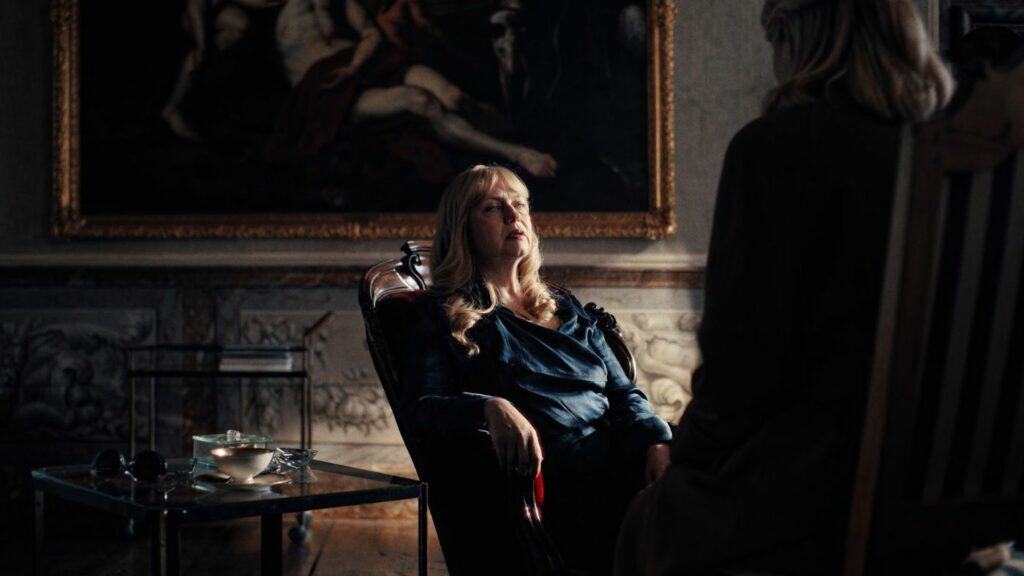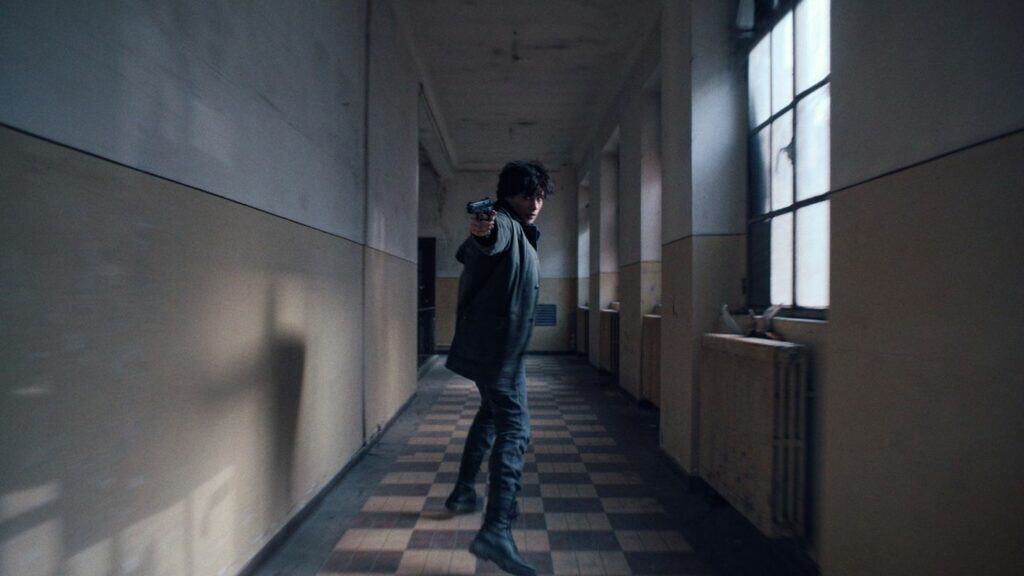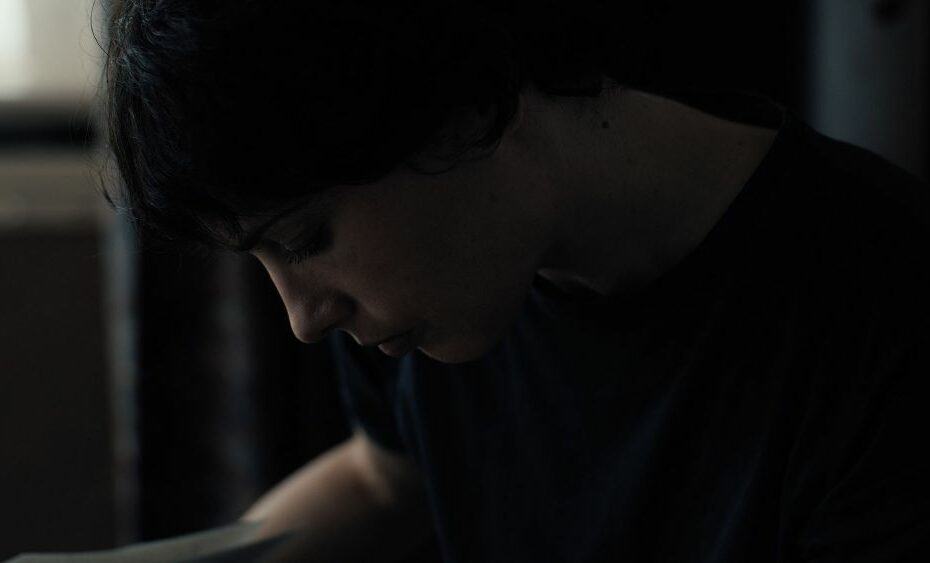La mort viendra (Death Will Come) is the latest film by Christoph Hochhäusler (interviewed here). It follows last year’s Till the End of the Night (Bis ans Ende der Nacht), which won Thea Ehre a Silver Bear for Best Supporting Performance at the Berlinale. Both works are genre films of some kind where one can trace different types of stylistic influences. Yann (Pitcho Womba Konga) is a courier caught by the police in Luxembourg while transporting a large amount of cash hidden in paintings. Someone bails him out, and he hides in a hotel. It turns out that it is not safe enough, and he is shot and killed by an unidentified perpetrator.
Yann worked for Charles Mahr (Louis-Do de Lencquesaing), who now wants revenge and hires the hitwoman Tez (Sophie Verbeeck) to find the killer. There are other characters involved. Mahr’s rival, Patric De Boer (Marc Limpach), wants him to invest in a hi-tech project involving a kind of VR brothel with sex dolls. Mahr is reluctant to abandon his old-school methods. He even prefers printouts to digital photos.

La mort viendra
As pictured above, death came early in the film and, in some ways, propelled the plot and its various clues and red herrings. As I mentioned in my piece on Tenet, those aspects of cinema are the ones that interest me the least. It should still be said that the plot machinations are nowhere near as irritating in La mort viendra as in other similar films. The title is derived from a Cesare Pavese poem. The first line roughly translates as “Death will come, and it will have your eyes.” At the risk of simplifying, I would say that it points to the theme of seeing and perception, which is predominant in the film.
When Mahr visits his ex-wife, he comments on the beauty of a painting on her wall. She agrees and says, “Yes, it’s the light”. As accurate as it is about the painting in question, the same goes for the film like Till the End of the Night, shot by Reinhold Vorschneider. The film is full of memorable images and is constantly a pleasure to behold, also due to Renate Schmaderer’s production design. La mort viendra has a pleasant retro feel, and I was often reminded of French seventies thrillers. This is not only because of the French dialogue but also how the film treats its characters with numerous sequences that are not merely in service of the plot.

The theme of seeing is alluded to in other ways. The aforementioned Mela is blind but might, in many ways, be more perceptive than others. There is also a direct reference to Giuseppe Maria Crespi’s painting, Hecuba Blinding Polymnestor. When it comes to beautiful sequences not servicing the plot, one of the most memorable is set in a bar where Mela encourages Tez to approach “the woman she likes the most”, who turns out to be a bartender. Like the rest of the film, the scene is perfectly balanced. The acting is uniformly excellent, with extra points for Louis-Do de Lencquesaing and Delphine Bibet. Sophie Verbeeck is really good as Tez and resists turning the character into some token superwoman.
There is much to recommend in La mort viendra. It will open in German cinemas on May 8th 2025. It might be screened at some international festivals before then. Seen in the Focus: Germany section at the 2024 Black Nights Film Festival, following the world premiere in the competition of the Locarno Film Festival.

